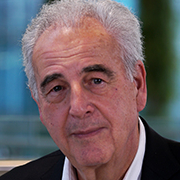- Level Foundation
- Duration 30 hours
- Course by University of Geneva
-
Offered by

About
This MOOC is the first of its kind, since it addresses critical issues related to drugs from a multidisciplinary, health and human rights-based approach. Throughout the course you will cover a range of questions including what are drugs and why they controlled? What are the benefits and harms of taking drugs? How public health policies can address drug use? You will also learn about the intricacies of the international drug control framework and the negative consequences of widespread prohibitionist drug policies around the world. Finally, you will examine ways of furthering drug policy reform. The topics will be presented by over 40 speakers from scientific, academic and institutional backgrounds, spokespersons of civil society as well as people who use drugs presenting their views. By the end of the course you will have: - a strong understanding of the major health issues related to drug use and drug policy; - a clear vision of why drug policy is debated today; - and, if you so wish, you will be equipped to engage in the drug policy reform movement at your local or regional level.Modules
Welcome and Introduction to the MOOC
2
Videos
- Teaser
- Video 1:Introduction to the MOOC
3
Readings
- Syllabus and course plan
- Map of the content of all Modules
- 📢 Important preliminary information: Evaluations
Module 1 Essential Reading and Optional Additional Resources
2
Readings
- Essential reading for Module 1
- Optional additional resources for Module 1
Lesson 1: What do we mean by drugs?
1
Discussions
- What is your definition of a "drug"?
2
Videos
- Video 2: Introduction to Module 1
- Video 3: The social construction of drugs
Lesson 2: Drugs: Why are they used and controlled
2
Videos
- Video 4: Why do people use drugs?
- Video 5: Why are drugs internationally controlled?
Lesson 3: The international drug control framework
3
Assignment
- Questions on Video 6 "What constitutes the international drug control framework? "
- Question on video 7 "Are the international drug control conventions binding on States? "
- Can you name the unintended consequences of the prohibition regime?
1
Discussions
- What did you consider important about UNGASS 2016?
4
Videos
- Video 6: What constitutes the international drug control framework?
- Video 7: Are the international drug control conventions binding on States?
- Video 8: The increasing questioning of the prohibition regime
- Video 9: UNGASS 2016: a crack in the international consensus?
Module 1 graded quiz
1
Assignment
- Module 1 - Graded Quiz
Module 2 Essential Reading and Optional Additional Resources
2
Readings
- Essential reading for Module 2
- Optional additional resources for Module 2
Lesson 1: Drug use: perceptions and reality
1
Assignment
- Perceptions of drugs and people who use drugs
1
Discussions
- What do you think about drug use in your country?
5
Videos
- Video 1: Introduction to Module 2
- Video 2: Epidemiology of drug use
- Video 3: What is the World Drug Report?
- Video 4: Perceptions about drugs and drug users around the world
- Video 5: Stigmatization of women who use drugs
Lesson 2: Drug use: when do we have to worry?
2
Assignment
- Can you classify drugs according to their relative harms?
- What do you know about health issues related to drug use?
5
Videos
- Video 6: What does science tell us about the benefits and harms of using drugs?
- Video 7: Classifying drugs according to their harms
- Video 8: Does drug use mean dependence?
- Video 9: Health issues related to drug use
- Bonus video: HCV and HIV among People Who Inject Drugs
Module 2 Graded Quiz
1
Assignment
- Module 2 - Graded Quiz
Module 3 Essential Reading and Optional Additional Resources
2
Readings
- Essential reading for Module 3
- Optional additional resources for Module 3
Lesson 1: Health policies addressing drug use: aiming for abstinence or harm reduction
2
Discussions
- Can you name different approaches of addressing drug use?
- What do you know about harm reduction?
4
Videos
- Introduction to Module 3
- Video 2: How public health policies address drug use
- Video 3: Harm reduction: concept and tools
- Video 4: What is the history of harm reduction?
Lesson 2: Harm reduction centered health policies
2
Assignment
- Can you name key populations related to drug use? and what do you know about the effectiveness of harm reduction measures?
- Can harm reduction be integrated into health policies?
1
Discussions
- What do you think about the accessibility of harm reduction services?
7
Videos
- Video 5: Harm reduction is effective
- Bonus video: Harm reduction saves lives
- Bonus video: The Global State of Harm Reduction
- Bonus video: La Mission Interministérielle de Lutte contre les Drogues et les Conduites Addictives en France: Principes et actions
- Video 6: When is treatment necessary?
- Video 7: Fitting harm reduction into existing health policies
- Video 8: Prevention, harm reduction and treatment complement one another
Graded quiz on Module 3
1
Assignment
- Module 3 - Graded Quiz
TAKE PART IN OUR SURVEY
1
Readings
- Survey: your language profile and your use of subtitles
Module 4 Essential Reading and Optional Additional Resources
2
Readings
- Essential reading for Module 4
- Optional additional resources for Module 4
Lesson 1: The negative impact of prohibition on the health of individuals and the society
1
Discussions
- The wording associated with drugs and drug use
6
Videos
- Introduction to Module 4
- Video 2: Most drug policies in the world are based on prohibition law enforcement and criminalization of drug use
- Video 3: Are prohibition law enforcement drug policies effective?
- Video 4: The negative impact on health of prohibition law enforcement drug policies
- Video 5: The impact of law enforcement on public health and public safety
- Video 6: How law enforcement and health can cooperate to improve health
Lesson 2: The negative impact of prohibition on human rights and development
1
Assignment
- The relationship between international drug laws and international human rights laws
2
Discussions
- Thinking about how the international drug control system and human rights interact
- Thinking about the world drug trade
14
Videos
- Video 7: How the human rights framework and the drug control framework interact
- Video 8: Prohibitionist drug policies: violations of human rights
- Video 9: Prohibitionist drug policies: violations of human rights of women who use drugs
- Video 10: A closer look at drug policies in Asia – the limits of extremity in drug policy
- Video 11: Violations of human rights in Central America and South America
- Video 12: Prohibitionist law enforcement drug policies negatively impact development and the environment
- Video 13: Prohibition fuels violence, crime and corruption
- Video 14: How prohibition fuels violence, crime and corruption: the situation in Central America
- Video 15: How drug law enforcement affects drug markets
- Bonus video: The situation in Indonesia
- Bonus video: Violations of human rights of people who use drugs: the situation in Latin America
- Bonus video: The situation in the Middle East and North Africa Region
- Bonus video: Violations of human rights of people who use drugs: the situation in Brazil
- Bonus video: Violations of human rights of people who use drugs: the situation in the Eurasian region
Graded quiz for Module 4
1
Assignment
- Module 4 - Graded Quiz
Module 5 Essential readings and optional additional resources
2
Readings
- Essential reading for Module 5
- Optional additional resources for Module
Lesson 1: The international scheduling of drugs
1
Assignment
- The international drug scheduling system
3
Videos
- Video 1: Introduction to Module 5
- Video 2: The international scheduling of drugs
- Video 3: How the international system of scheduling of drugs works: the WHO perspective
Lesson 2: Barriers to access to controlled medicines
3
Assignment
- The barriers to access to essential medicines
- The opioid epidemic in the United States
- The international scheduling process
4
Videos
- Video 4: The barriers to access to essential medicines
- Video 5: The special case of the opioid epidemic in the United States
- Video 6: Medical use of cannabis and cannabinoids
- Video 7: The case for a revision of the international scheduling of drugs
Graded quiz for Module 5
1
Assignment
- Module 5 - Graded Quiz
Module 6 Essential readings and list of optional additional resources
2
Readings
- Essential reading for Module 6
- Optional additional resources for Module 6
Lesson 1: The failure of prohibitionist drug policies
3
Videos
- Video 1: Introduction to Module 6
- Video 2: The failure of prohibitionist drug policies
- Video 3: The case for drug policy reform
Lesson 2: Experimenting with and monitoring alternative drug policies
1
Assignment
- Decriminalization
3
Videos
- Video 4: Decriminalisation
- Video 5: Legalisation and Regulation
- Video 6. Monitoring drug policies
Lesson 3: Getting involved in the drug reform movement
1
Discussions
- What role can civil society actors play in your country?
6
Videos
- Video 7: The role of civil society
- Video 8: The role of drug user groups
- Video 9: Would you join the drug reform movement?
- Video 10: What you can do?
- Bonus video: What do drug policies look like in Latin America
- Bonus video: Approches de Réduction des Risques en Afrique de l'Ouest
Lesson 4: Conclusion
1
Videos
- Conclusion
Module 6 Evaluation
1
Peer Review
- Module 6 - Graded Peer Review
Auto Summary
Explore critical drug-related issues in this multidisciplinary course focusing on health and human rights. Taught by over 40 experts, you'll delve into drug benefits and harms, public health policies, and the global drug control framework. Ideal for those interested in drug policy reform, this foundational course spans 1800 minutes and is available via Coursera with Starter and Professional subscription options. Perfect for health and fitness enthusiasts seeking a comprehensive understanding of drug use and policy.

Michel Kazatchkine

Barbara Broers

Jennifer Hasselgard-Rowe

Aymeric Reyre


